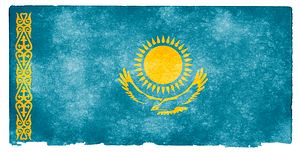Central Asia weekend recommended reads and listens:
A Year After the Protests in Kazakhstan: RFE/RL’s Majlis crew — Muhammad Tahir and Bruce Pannier — gathered a good crowd of experts last week to discuss the passing one year anniversary of the land code protests that roiled Kazakhstan in a way not seen since independence. Aigerim Toleukhanova and Reid Standish agreed that the protests — sparked in large part by inaccurate rumors regarding changes to the land code — touched off a wider public airing of grievances and frustrations. The government’s response, a mix of carrots and sticks, and a stabilizing (though not improving) economy have prevented further large public protests.
Central Asia’s Freedom of the Press: Timur Toktonaliev, for IWPR, recounts Central Asia’s press freedom scores (from Reporters Without Borders), and dives a bit more comprehensively into why the region’s lacks progress in press freedoms. The stalemate, Toktonaliev argues, is perpetuated by poor economics and fears of extremism. Uzbek human rights defender Nadezhda Atayeva, speaking about Uzbekistan, makes a serious point about the role of self-censorship. “Self-censorship [among citizens] is absorbed with their mother’s milk,” she says.
Kyrgyz Landslide: A landslide in southern Kyrgyzstan on April 29 killed at least 24 people. Peter Leonard, for EurasiaNet, wrote this week about the recovery efforts and factors that led to the tragedy. According to officials, some of the buildings in Ayuu were illegally constructed and some residents were previously given preferential loans to move, but did not. In March, officials say they warned residents of the danger of a landslide. But as Leonard points out, it’s not so simple as getting up and moving — it’s abandoning a home and a livelihood.
Out of Eden and Meeting The Manaschi: Paul Salopek, on a long journey walking in the footsteps of humanity’s ancestors from Africa across the world, is walking through Central Asia at present. The Out of Eden project, hosted by National Geographic, is in its fourth year, with many more to come. In Central Asia, Salopek met a young man studying the Kyrgyz national epic Manas in his own journey to become a manaschi. Turns out Salopek paused his walk to wait out Central Asia’s winter in Bishkek, resulting in a plethora of stories on Kyrgyzstan: he’s visited the Frunze museum, a paleolithic workshop, Dordoi Bazaar, and Cholpon-Ata’s petroglyphs. Late last year he passed through Uzbekistan.
Bonus: This weekend we’re featuring an article by Agnieszka Pikulicka-Wilczewska, who spoke recently to the Islamic Renaissance Party of Tajikistan’s exiled leader, Muhiddin Kabiri. Kabiri gained asylum in an unnamed European country in February and Pikulicka-Wilczewska’s interview helps shed light on how and why he left Tajikistan. Kabiri is hopeful, though in no immediate way, of one day returning home — but given Dushanbe’s pursuit of his party, labeling it a terrorist organization, jailing those leaders who did not flee (and their lawyers), that seems a distant possibility.

































